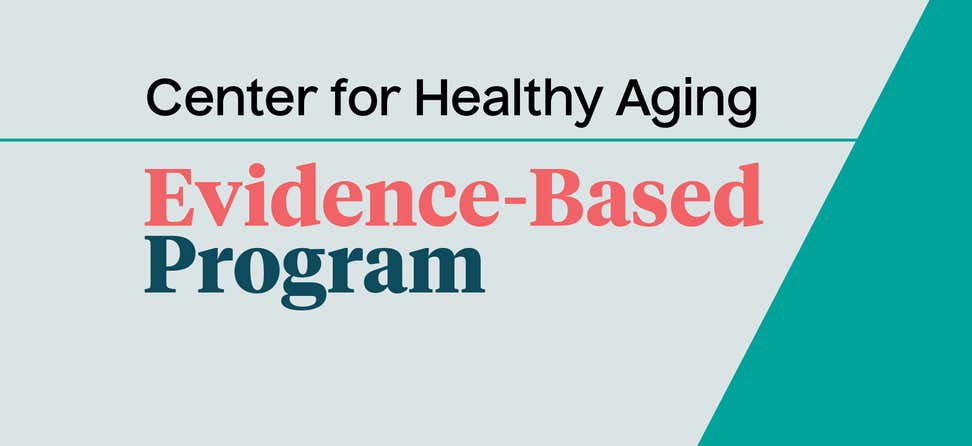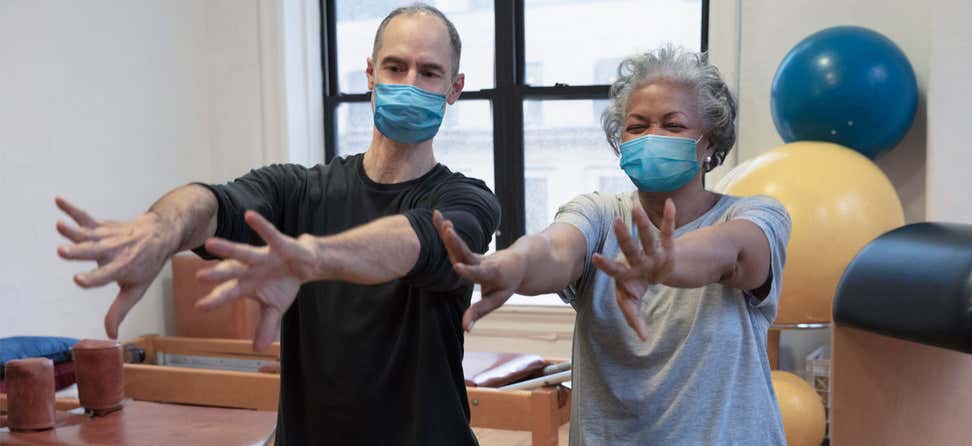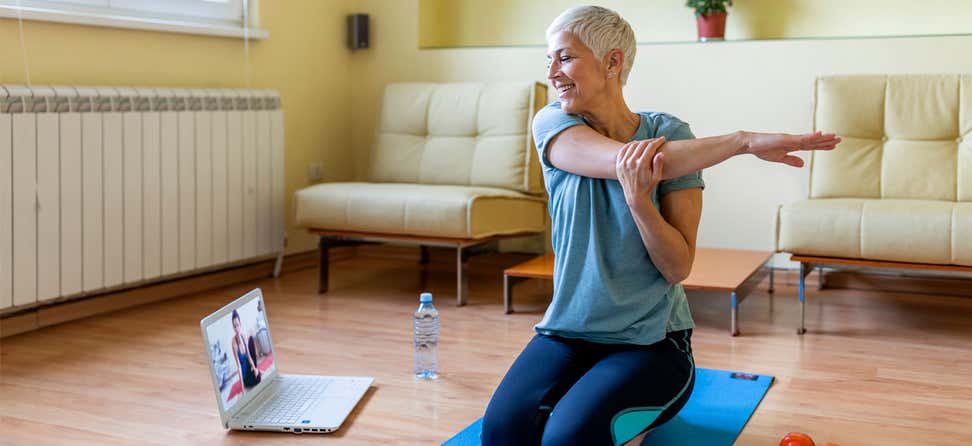Key Takeaways
Engage adults with intellectual and developmental disabilities through a program focused on increased self-efficacy, exercise, and life satisfaction.
HealthMatters™ Program is an evidence-based health promotion program for people with intellectual and developmental disabilities (IDD). Through our community-academic partnerships, we aim to provide high quality evidence-based and evidence-informed health promotion programs and training for people with IDD and their supports in health-friendly communities.
Stay tuned for more information about the Virtual Coach HealthMatters Program.
Note: Track health promotion program guidance during COVID-19 regularly for updates to program implementation and training options. Programs traditionally implemented in-person may be temporarily allowable by telephone or online.
- Target audience: Target audience includes people with intellectual and developmental disabilities (IDD) and their support persons who are employed in day/residential/employment community-based programs serving people with IDD (direct support professionals, Case managers, Licensed social workers, Health care professionals, Community health workers, Certified fitness instructors, Lay leaders, Students).
- Health outcomes:
- Outcomes (Efficacy University-Based Clinical Trial) – Adults with IDD in Intervention group – Participation in HealthMattersTM Program led to improved attitudes and psychosocial outcome among people with IDD (Heller, et al., 2004; Rimmer, et al., 2004).
- Increased exercise attitudes
- Increased exercise self-efficacy
- Increased exercise outcome expectations
- Increased life satisfaction
- Increased cardiovascular fitness, strength and endurance
- Decreased cognitive–emotional barriers
- Outcomes (Effectiveness Community Based Train the Trainer Project) – Certified staff in CBOs can effectively implement a HealthMattersTM Program for people with IDD with improved outcomes (Marks, Sisirak, & Chang, 2013).
- Increased perceived health behaviors
- Increased exercise self-efficacy
- Increased nutrition/activity knowledge
- Increased cholesterol & glucose
- Increased fitness (flexibility)
- Increased exercise & nutrition socio-environmental supports
- Outcomes (Effectiveness Community Based Train the Trainer Project) – Certified staff in CBOs can also benefit from training and implementing a HealthMattersTM Program for people with IDD with improved outcomes (Marks, Sisirak, Chang, & Murphy, 2019).
- Increased social/environmental supports for nutrition
- Increased exercise outcome expectations
- Increased nutrition outcome expectations
- Increased fruit and vegetable intake
- Increased knowledge of fruit and vegetable intake recommendations
- Increased stages of change for eating fruits and vegetables
- Outcomes (Efficacy University-Based Clinical Trial) – Adults with IDD in Intervention group – Participation in HealthMattersTM Program led to improved attitudes and psychosocial outcome among people with IDD (Heller, et al., 2004; Rimmer, et al., 2004).
- Delivered by: 1-3 Certified Instructor, at least one Certified instructor per 1-4 participants with IDD
- Program type: Group. Some case management organizations have implemented programs to individuals.
- Format: In-person at home, in-person in community recreational centers, worksites, and day programs. Due to COVID-19 HealthMattersTM Program is now being offered with a hybrid approach using a virtual platform.
- Length:
- HealthMatters™ Program: Certified Instructor Workshop Webinar (6 hours, 90 minutes over 3 days, 90 minutes offline work)
- Health Matters: The Exercise and Nutrition Health Education Curriculum for People with Developmental Disabilities (Curriculum) 12-Week HealthMatters™ Program– three 1.5-2h sessions per week (4-6 hours per week) for 12 weeks, total 36 lessons
- Training: Online (In-person training available upon request)
- Professional required: No
- Accessibility adaptations available: Yes, incorporating principles of Universal Design and Universal Design Instruction.
- Cultural adaptations available: Yes
- Available in languages other than English: Not at this time
- Topic(s):
- Alzheimer’s Disease/Dementia
- Behavioral Health – advocacy
- Chronic Disease
- Falls Prevention
- Medication Management
- Nutrition
- Pain Management
- Physical Activity









